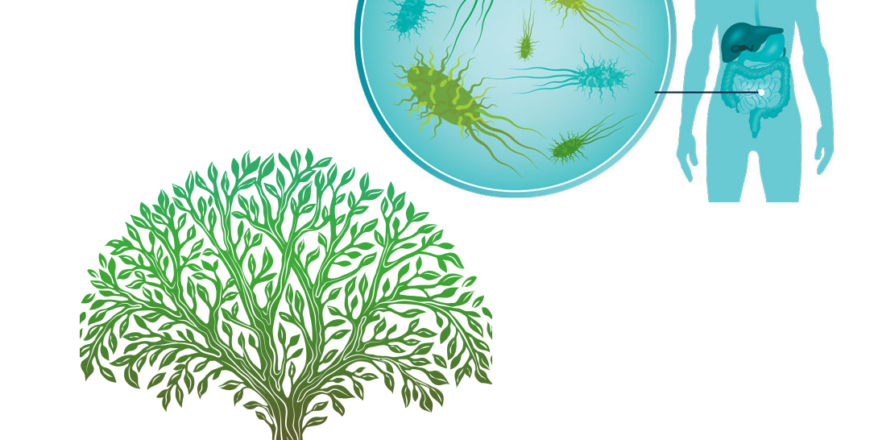The connection between gut bacteria & illness
Our digestive system, skin, eyes, respiratory and excretory organs co-exist with trillions of invisible microbes that together make a whole ecosystem living together in harmony. We must know that we humans cannot exist without these tiny micro-organisms that are in and on us.
The most amount of microbes live in our digestive system. A healthy adult has about 1.5-2kg of bacteria (good and bad) in the gut. All of these are a part of an organized system with certain species controlling others in order for vital activities to take place. We have 3 main micro-flora:
1. Essential or beneficial flora
The most important group and most numerous in a healthy body. They are what keeps our gut healthy and functioning.
2. Opportunistic flora (ex. yeasts, enterobacteria, streptococci etc..)
This group includes various microbes that when healthy, are usually limited and controlled by the essential flora.
3. Transitional flora:
These are microbes we ingest daily and that go through us without doing any harm if our gut is well protected by our beneficial bacteria.
When the ratio between the “good” and “bad” bacteria gets out of balance, illness has space to arise. Sometimes we may eat something wrong and feel bloated or have diarrhea but eventually our good bacteria does its job and we are back to normal a few days later. However, damage to our gut over a longer period of time has proven to be the cause of more serious conditions like Parkinson, Fibromyalgia or even Alzheimers. Scientific research along with our own patient case studies has shown that these illnesses arise from damage to the gut, not the brain. Many patients complain to have been dealing with constipation even 10 years before their symptoms began to arise.
Studies show that people with neurodegenerative diseases have different gut bacteria compared to healthy people.There is no single bacteria or virus causing these neurological illnesses — instead, it is the imbalance of bacteria that triggers inflammation first in the digestive tract and then throughout the nervous system, brain and entire body. Whatever happens in our gut is reflected in our brain and vice versa.
These findings allow for a different treatment approach than the common medication provided, which usually only suppresses symptoms.
Instead, treating these more serious conditions require a holistic approach that includes changing the diet, cleansing and getting rid of medication that continue to damage the intestinal walls and create even more toxins. There are a variety of approaches that may include regular colon cleanses, herbs, liver flushes and natural remedies. It is essential to find an experienced doctor that can validate what exactly works for the individual body and current condition, as every human is different. Often patients report having tried detoxing procedures with no success, however this process requires proper guidance through all stages from first clearing out, stabilizing, rebalancing and then restoring the function of all organs.
A holistic approach to healing does not provide you with a simple pill to numb the pain, instead it goes deep into the core to heal the root of your own tree.

